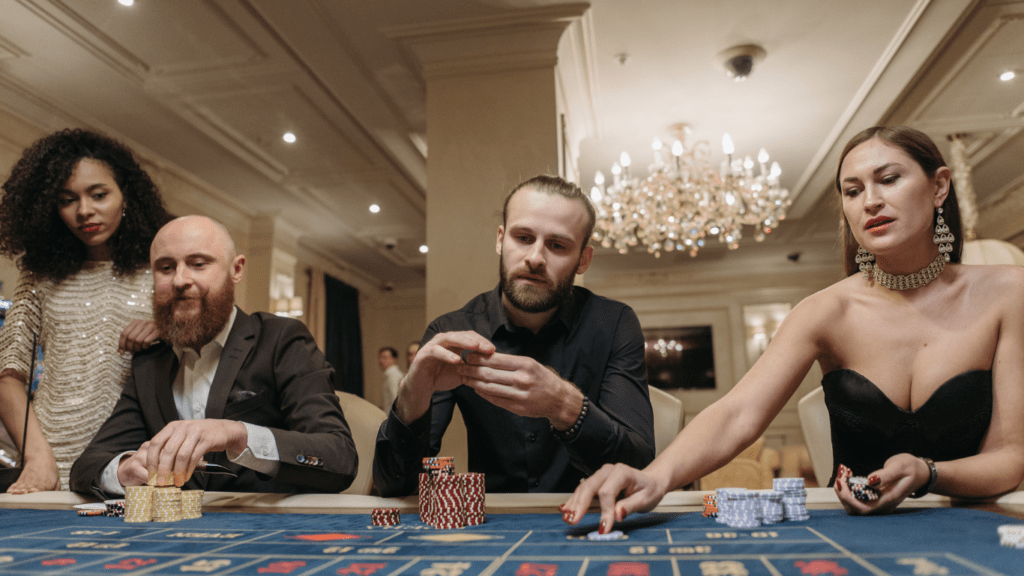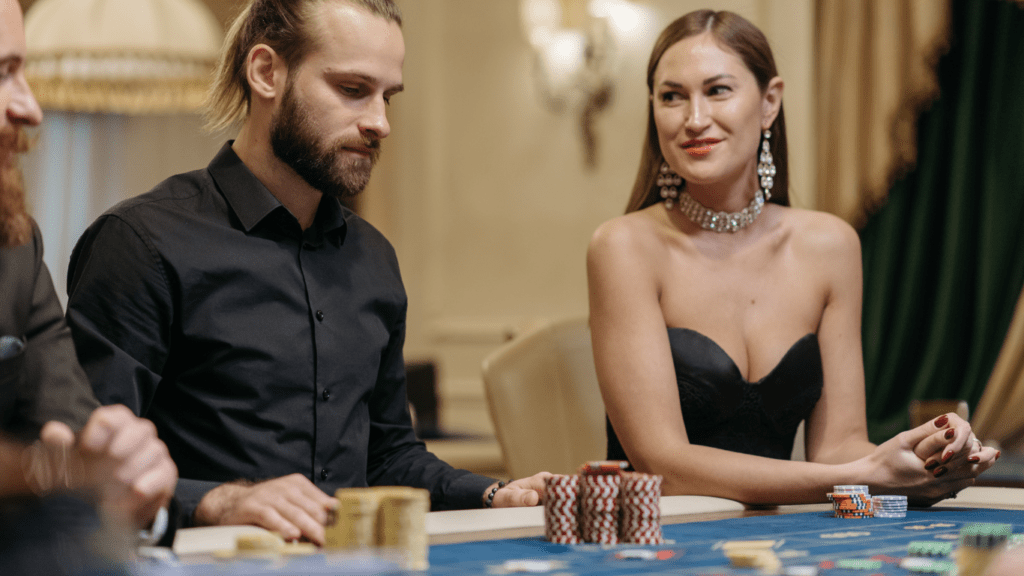Understanding The Basics Of Betting Psychology
Betting psychology involves the study of how emotions and cognitive biases affect decision-making. It’s a critical area to understand as our behaviors often deviate from rationality when money and risk are involved. Below are key concepts that outline fundamental aspects of betting psychology.
- Cognitive Biases: Cognitive biases such as the ‘gambler’s fallacy,’ the belief that past events influence future outcomes in random sequences, affect bettors’ choices. For example, after several losses, a bettor might believe a win is ‘due.’
- Emotional Influence: Emotions like excitement, fear, and greed can cloud judgment. Excitement from a winning streak may lead to overconfidence, influencing riskier bets.
- Overconfidence: Overestimating knowledge or ability can lead to poor decision-making. Bettors often think they have ‘special insights,’ which can result in larger, riskier bets.
- Loss Aversion: Bettors dislike losses more than they enjoy equivalent gains. This can lead to chasing losses, where one continues to bet to recover previous losses, often leading to further financial drain.
Understanding these psychological elements helps bettors recognize patterns in their behavior, promoting more rational decision-making. It’s essential to be aware of these biases and emotional influences to maintain control over betting strategies and outcomes. Knowledge of betting psychology provides a foundation for making informed and strategic bets rather than impulsive ones driven by emotions.
The Role Of Emotions In Betting
Emotions play a significant role in betting, often driving decisions beyond rational thought. Recognizing and managing these emotions can improve betting strategies and outcomes.
Common Emotional Triggers
Certain triggers consistently influence betting behavior. Key triggers include:
- Excitement: The thrill of potential wins often increases bet sizes and frequency.
- Greed: The desire for large returns can lead to riskier bets, ignoring odds and statistics.
- Fear of Loss: This can cause conservative betting or avoiding bets altogether, impacting overall strategy.
- Desperation: Attempting to recover losses quickly can result in irrational choices and further losses.
Fear Vs. Confidence
Fear and confidence significantly affect betting decisions. Fear, arising from previous losses, can lead to overly cautious bets, reducing potential gains. Confidence, often built from a streak of wins, can result in overbetting and ignoring calculated risks. Balancing these emotions ensures consistent, rational betting behavior.
By understanding these emotional influences, bettors can better control their strategies, making informed and strategic decisions.
Cognitive Biases And Their Impact
Cognitive biases play a significant role in betting decisions by distorting perception and judgment. Understanding these biases is essential for making more informed bets.
The Gambler’s Fallacy
The Gambler’s Fallacy is the mistaken belief that past random events affect future ones. In betting, I may think that if a coin toss landed heads multiple times, it’s “due” to land tails next. This bias leads to flawed betting strategies and losses. Recognizing that each event is independent helps avoid this fallacy.
Confirmation Bias
Confirmation Bias is the tendency to favor information that confirms my pre-existing beliefs. When betting, I might only notice data that supports my preferred outcome, ignoring contradictory evidence. This bias prevents objective analysis and can result in poor betting choices. To counteract this, I should seek balanced information and consider all relevant data before making decisions.
Strategies To Manage Emotions
Betting decisions often get swayed by emotions. Implementing strategies to manage these emotional influences can improve decision-making and outcomes.
Setting Limits And Goals
Setting clear limits and goals keeps emotions in check. Establish a budget for betting, ensuring it aligns with personal finances. By defining a maximum loss limit, you avoid chasing losses that lead to financial strain. Set specific, achievable goals, like winning a certain amount or stopping after a set number of bets. This structured approach helps maintain focus and prevent impulsive decisions.
Mindfulness Techniques
Mindfulness techniques promote emotional regulation. Practice techniques like deep breathing and meditation to stay centered. These methods reduce stress and keep emotions balanced during betting sessions. Consider techniques such as body scans to stay aware of physical sensations and emotions, helping to make rational decisions. Regular mindfulness practice fosters resilience against emotional biases, aiding in more controlled, objective betting decisions.
Real-Life Examples: Emotions Affecting Bets

Emotions significantly impact betting decisions in real-life scenarios. By examining both successes and failures, we can understand the profound influence emotions have on betting outcomes.
Success Stories
Successful bettors often display emotional control. For instance, professional poker players use mindfulness to stay calm under pressure. Daniel Negreanu, a renowned poker player, attributes his success to emotional regulation. He practices meditation, helping him maintain focus during high-stakes games despite intense emotions. These techniques allow him to make rational decisions and avoid impulsive bets.
Another example includes sports bettors who employ disciplined strategies. A successful sports bettor might set strict limits on bets regardless of winning streaks. By doing so, they avoid the trap of overconfidence, which can lead to reckless betting. This disciplined approach illustrates how managing excitement and confidence can lead to consistent wins over time.
Lessons From Losses
Emotional distress often leads to significant losses in betting. In one instance, a casual gambler suffered losses due to the ‘gambler’s fallacy’. Believing a win was ‘due,’ he increased his bets after a series of losses. This emotional bias, based on previous outcomes rather than statistical probabilities, resulted in substantial financial setbacks.
Another case involves a stock market trader influenced by greed and fear. Reacting emotionally to market fluctuations, the trader made impulsive decisions, buying during market highs out of excitement and selling during lows out of panic. This cycle of emotional decision-making led to repeated losses, showcasing the detrimental impact of emotions on betting judgments.
Reflecting on these examples emphasizes the critical role emotional control plays in betting. Strategies like setting limits, practicing mindfulness, and avoiding cognitive biases are essential to mitigate the negative impact of emotions on betting outcomes.



 Taj Mackinolty – Author
Taj Mackinolty is a seasoned gambling enthusiast and writer at Smart Gamble Land. With a sharp focus on betting systems and winning strategies, Taj delivers clear and actionable content to readers looking to improve their gambling skills. His deep analytical approach and understanding of risk management allow him to break down complex techniques into simple guides. Taj is passionate about helping players gain control over their betting habits and develop a strategic mindset that can lead to long-term success in the casino environment.
Taj Mackinolty – Author
Taj Mackinolty is a seasoned gambling enthusiast and writer at Smart Gamble Land. With a sharp focus on betting systems and winning strategies, Taj delivers clear and actionable content to readers looking to improve their gambling skills. His deep analytical approach and understanding of risk management allow him to break down complex techniques into simple guides. Taj is passionate about helping players gain control over their betting habits and develop a strategic mindset that can lead to long-term success in the casino environment.
